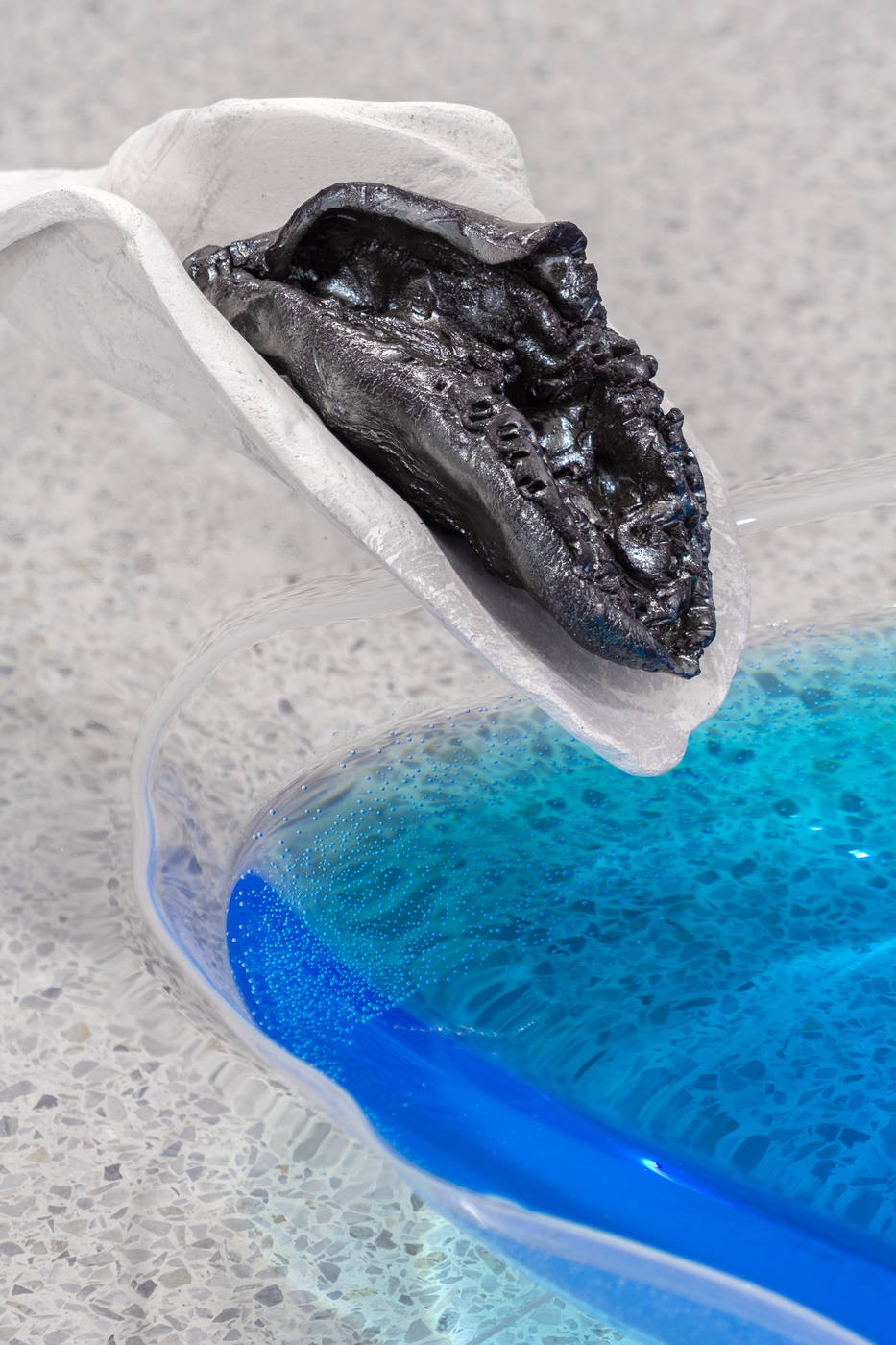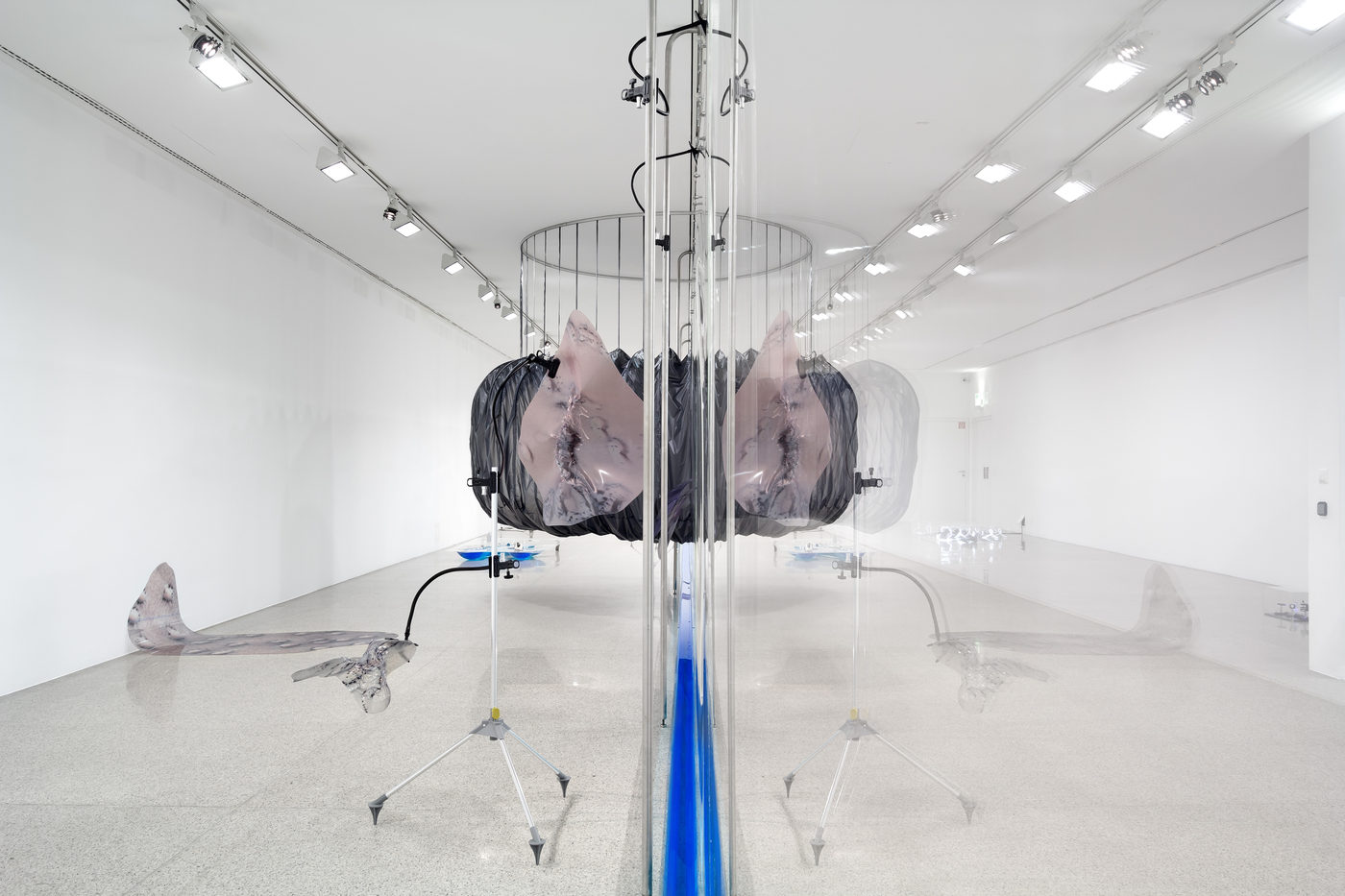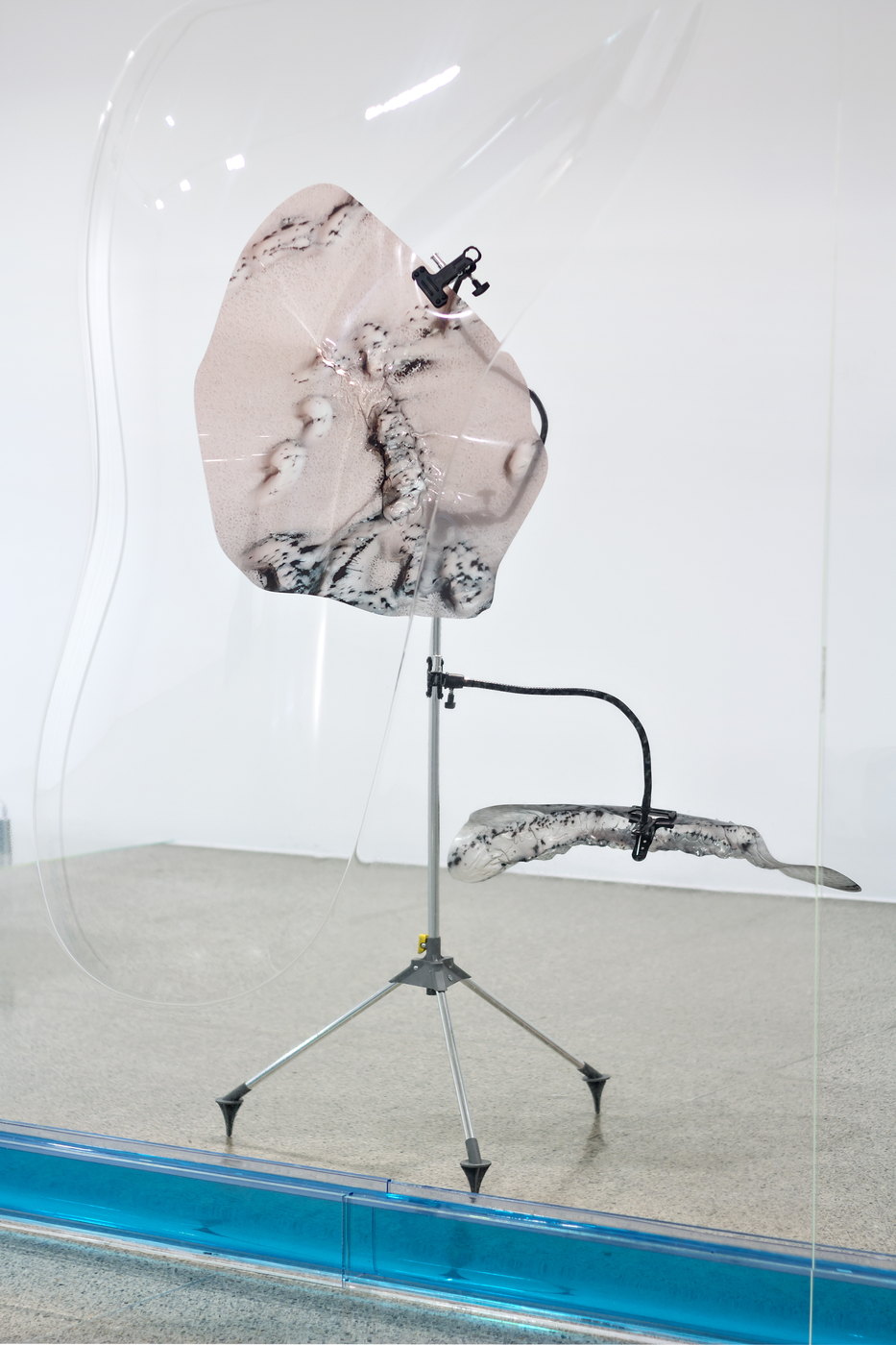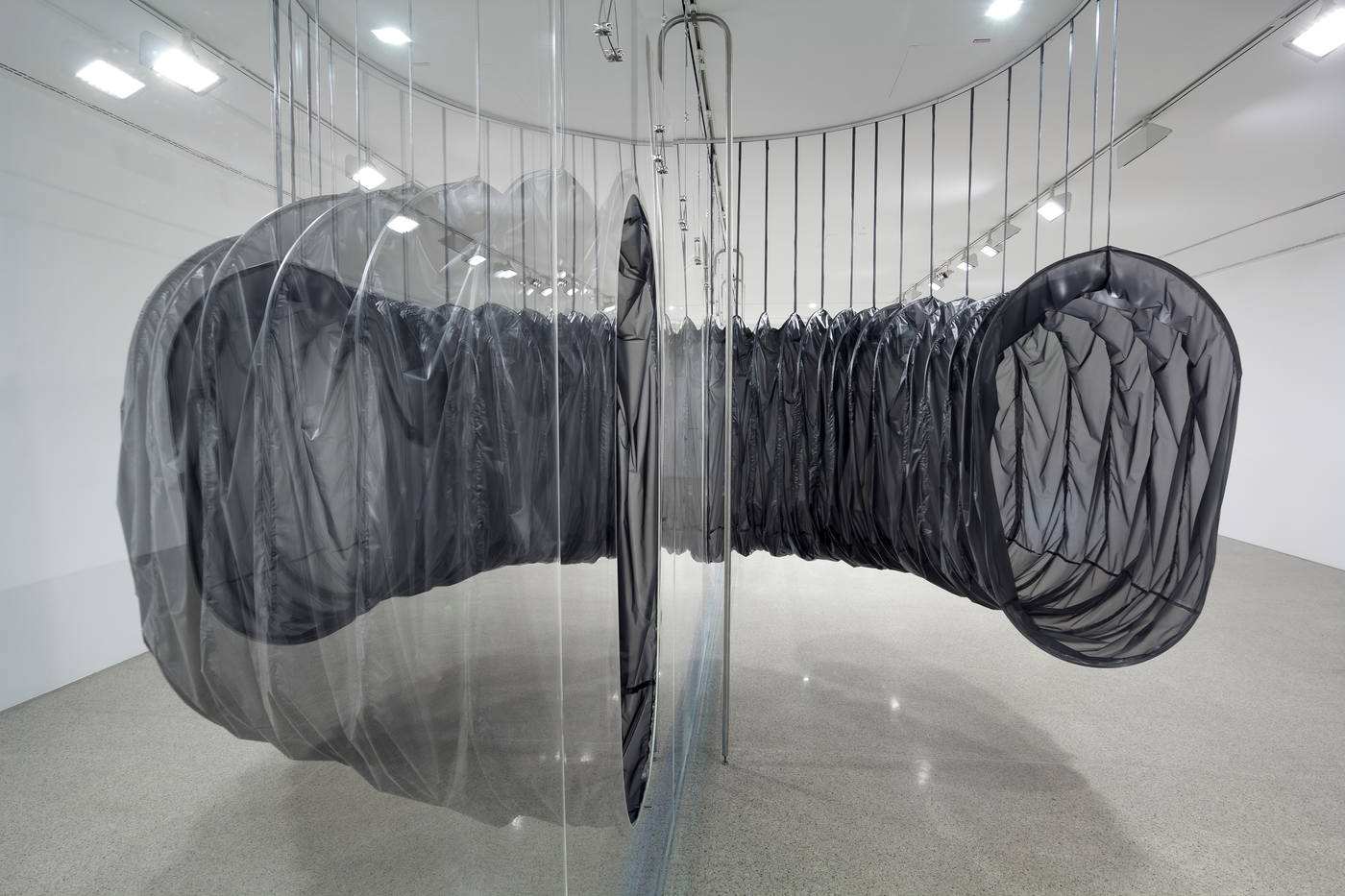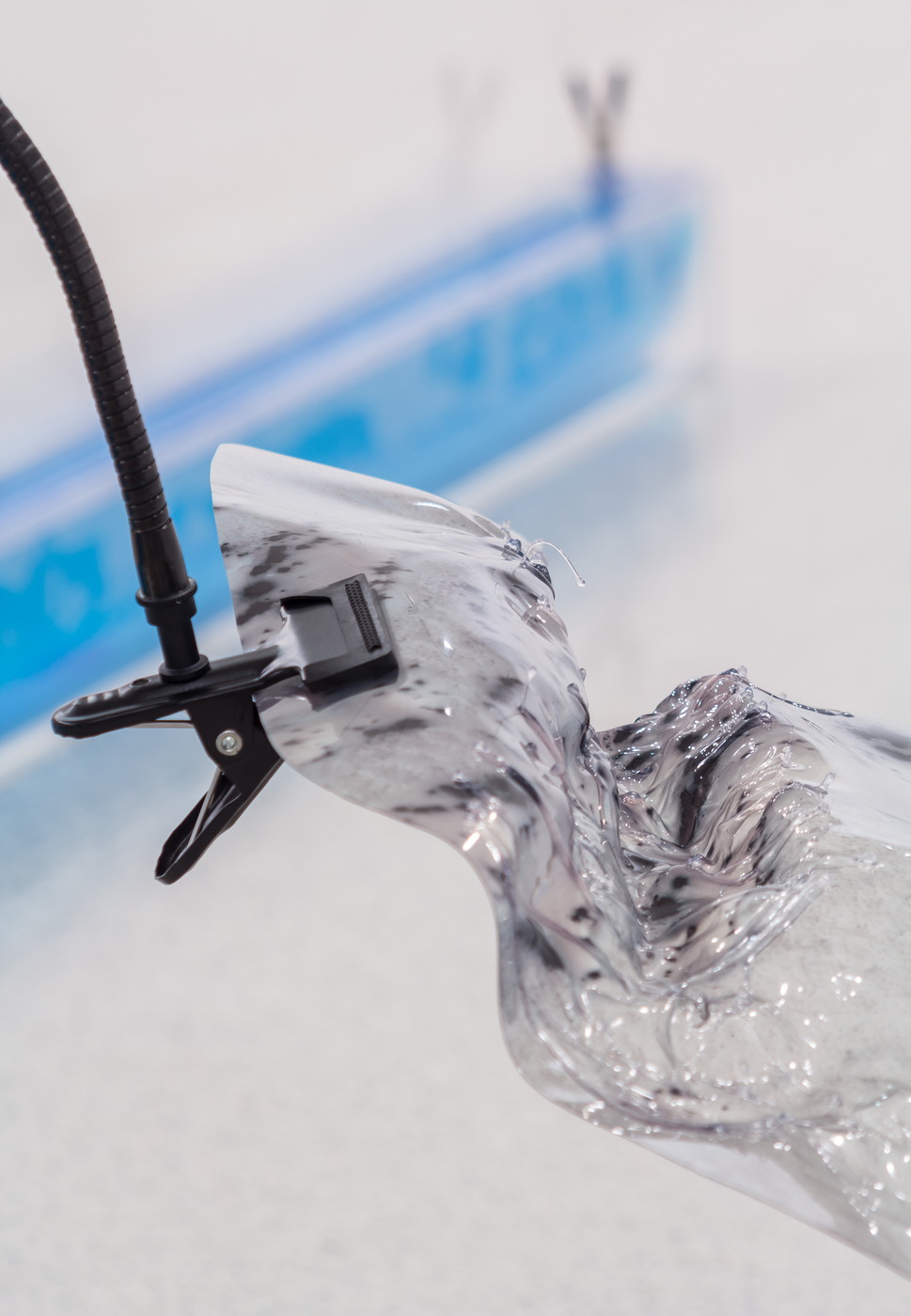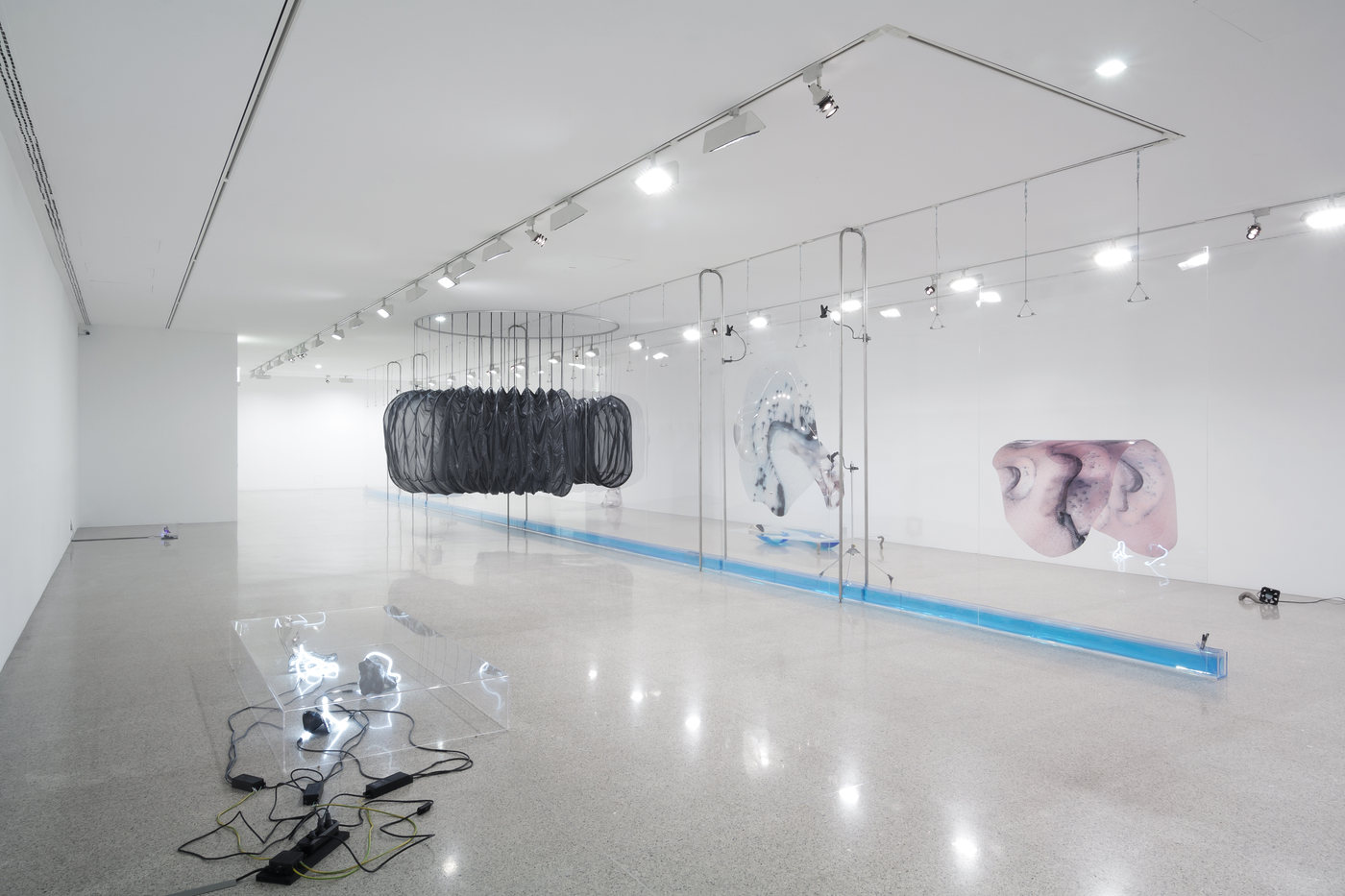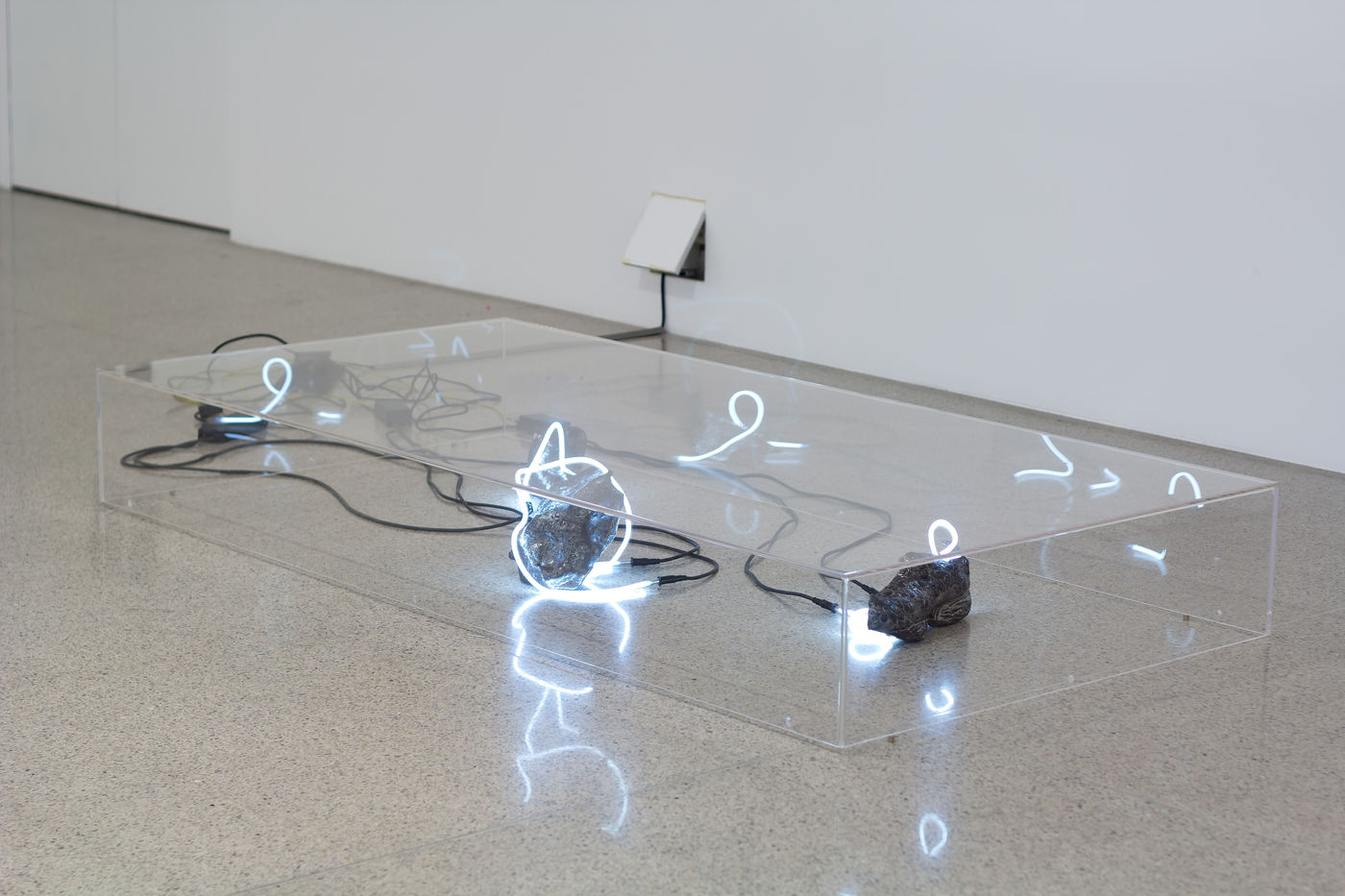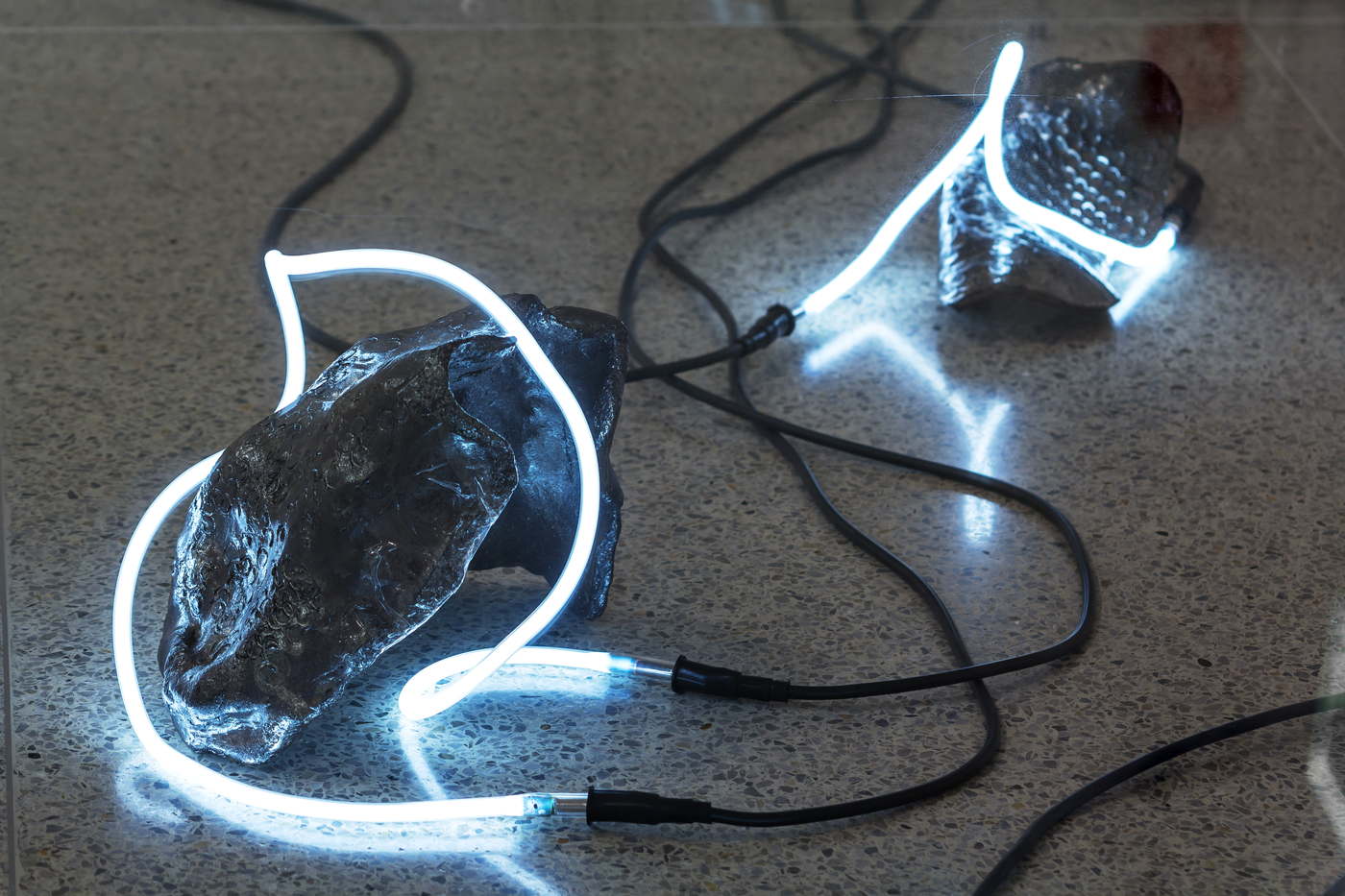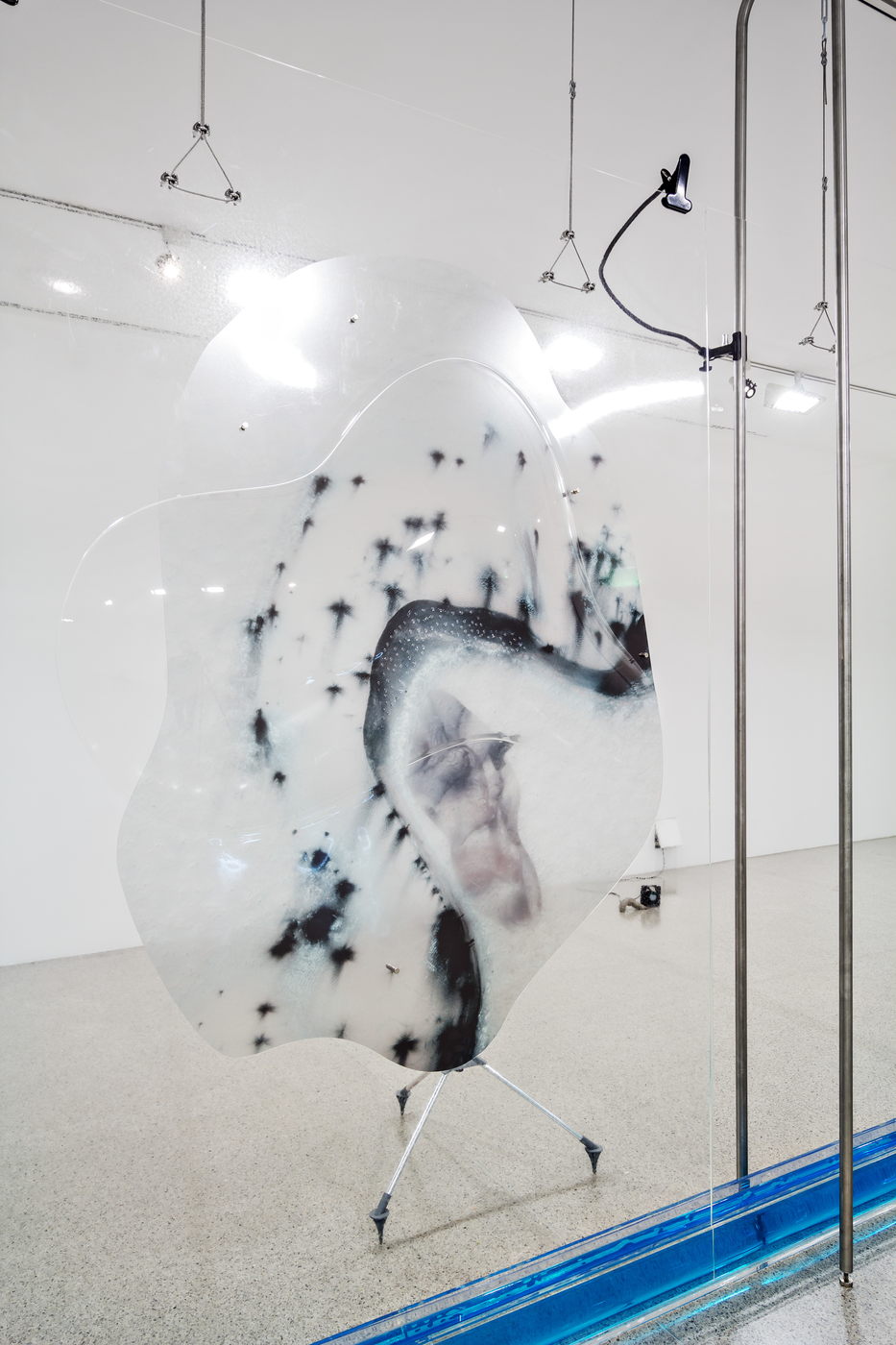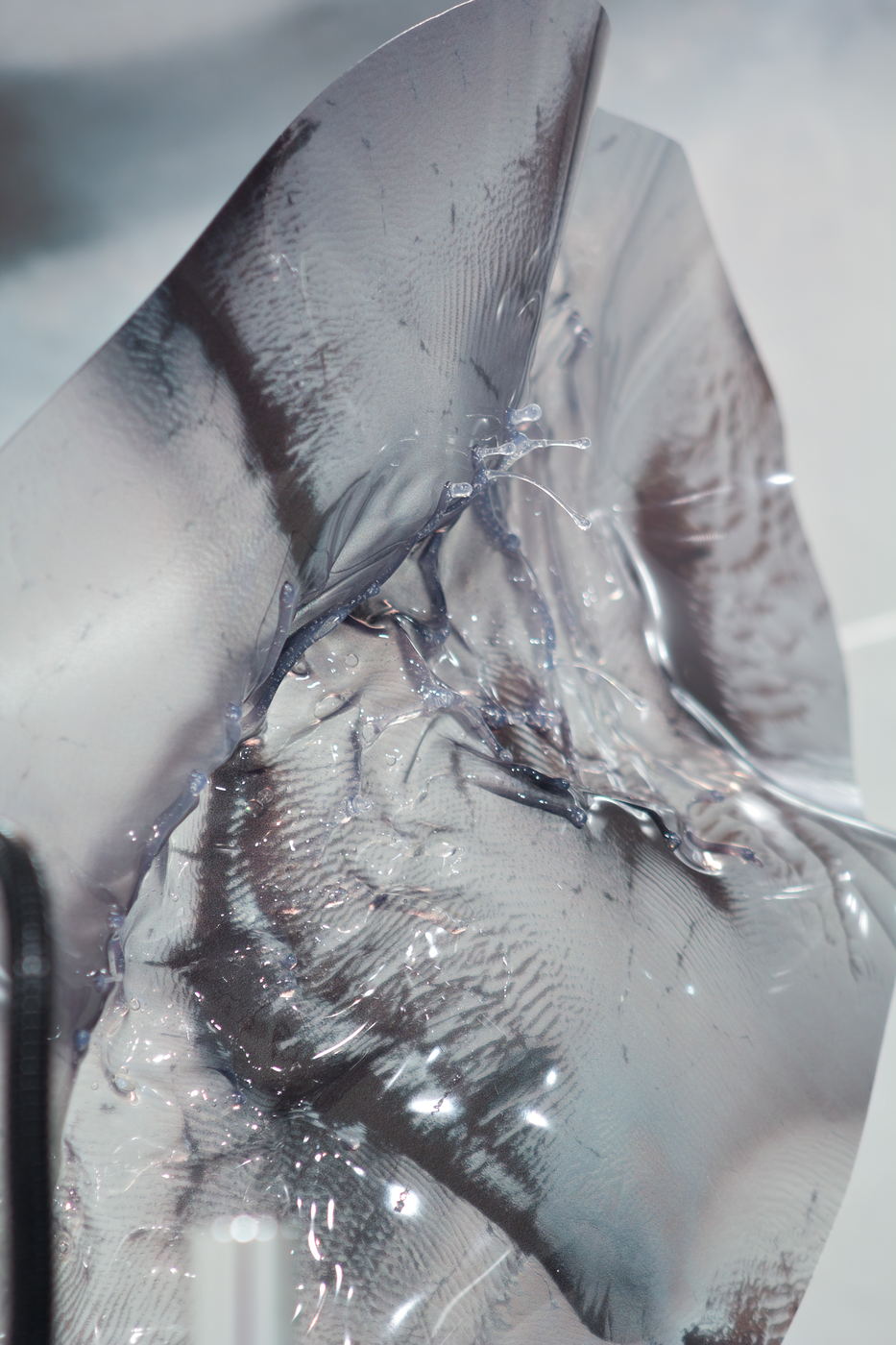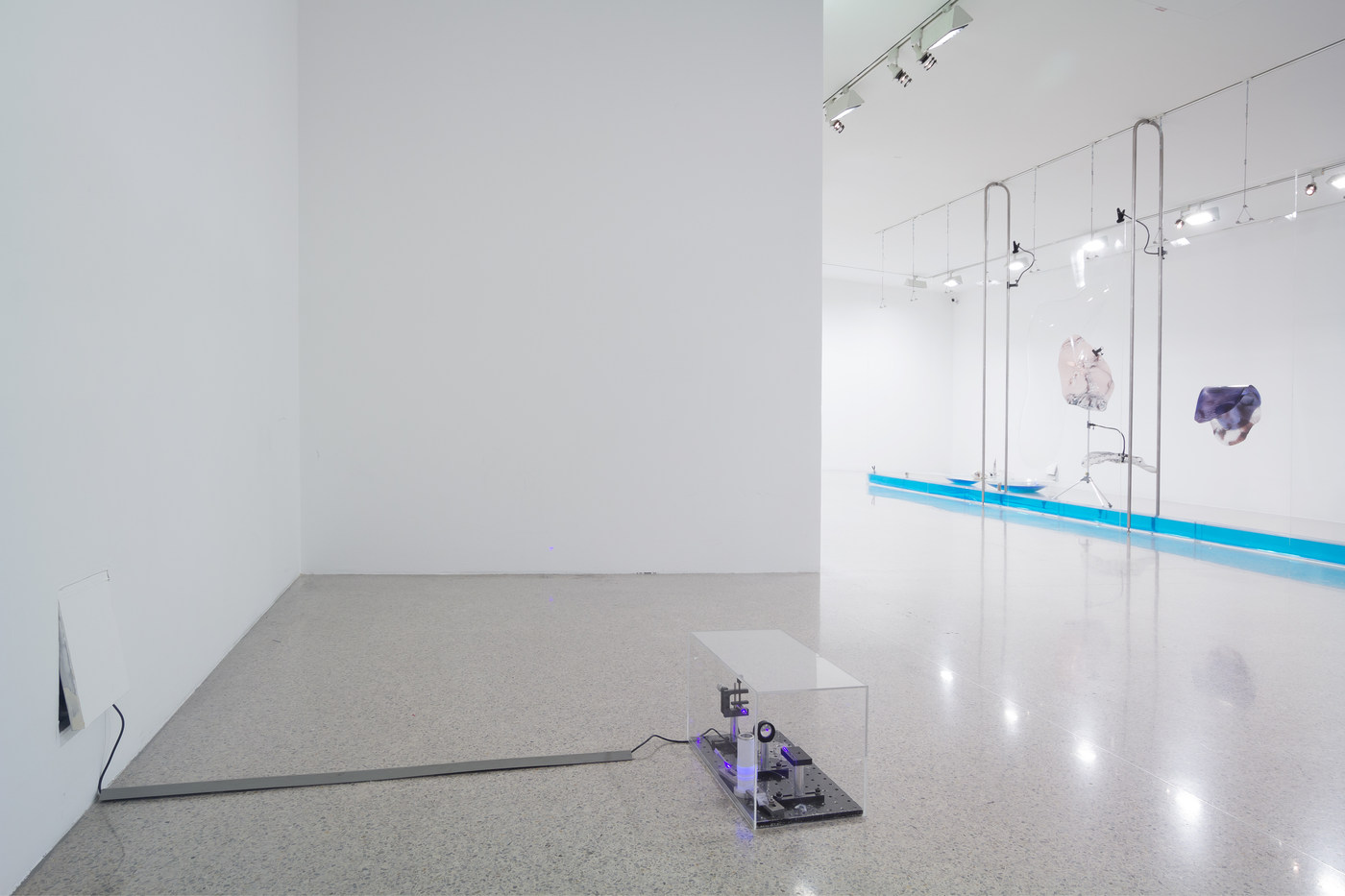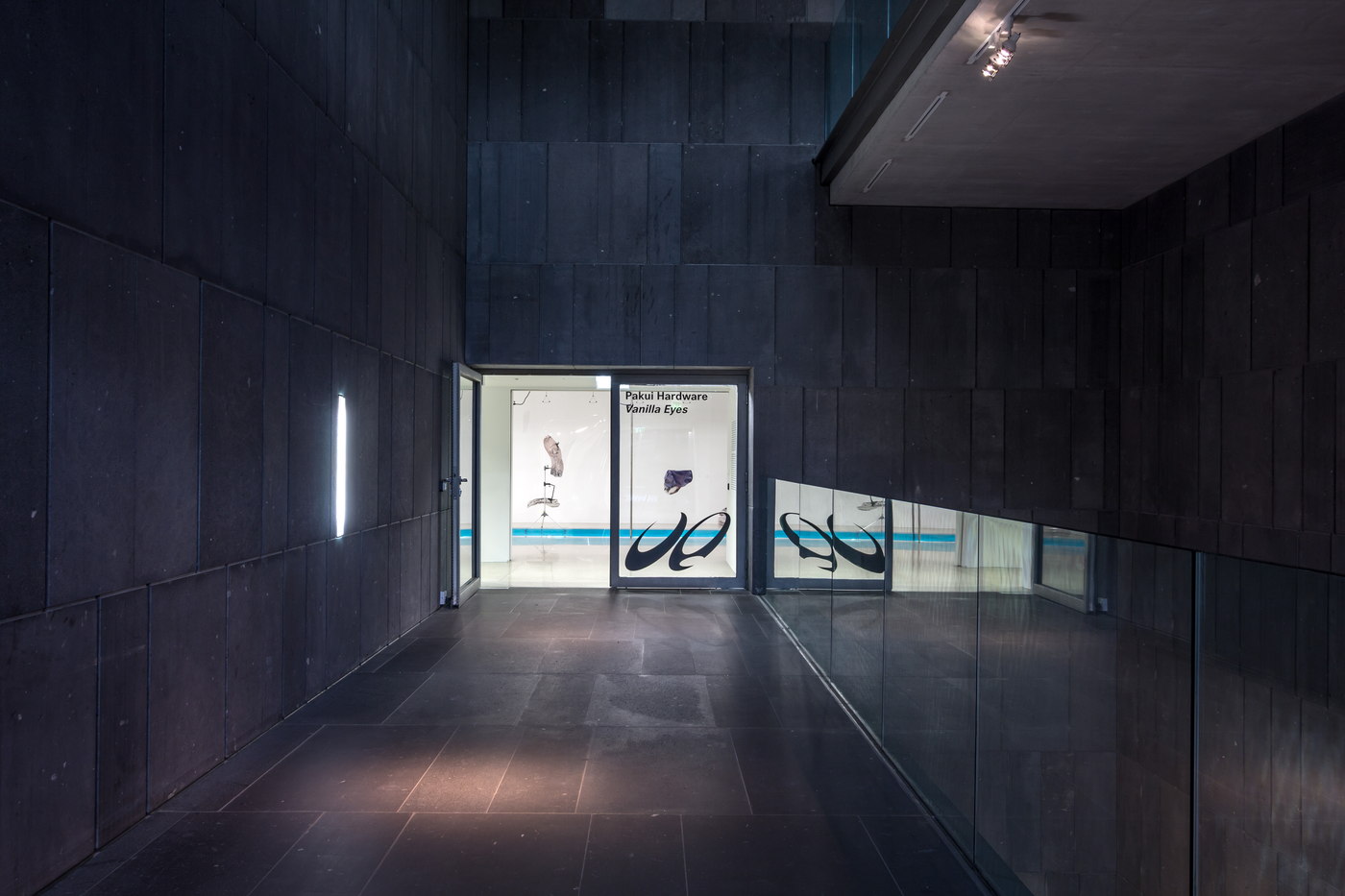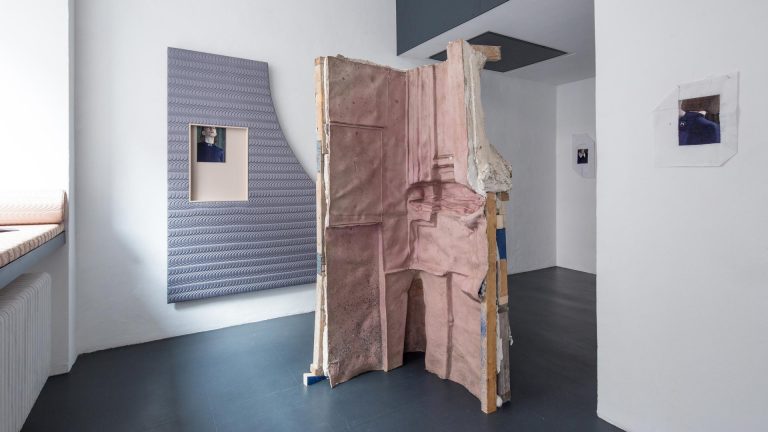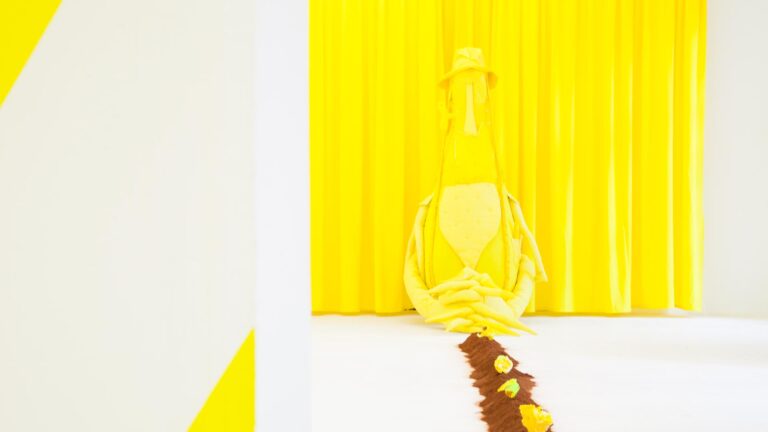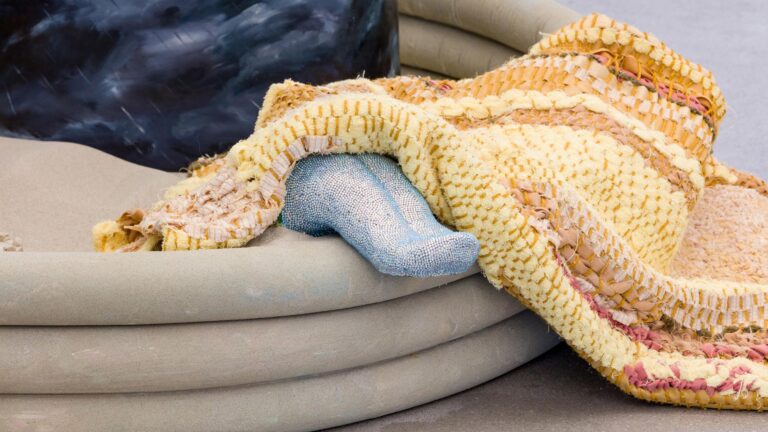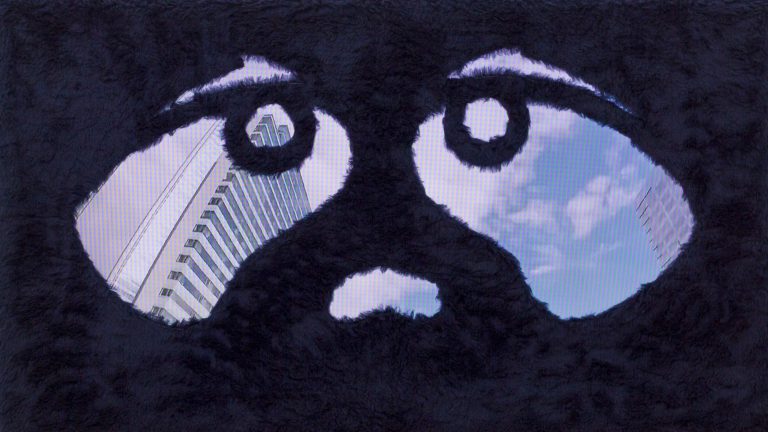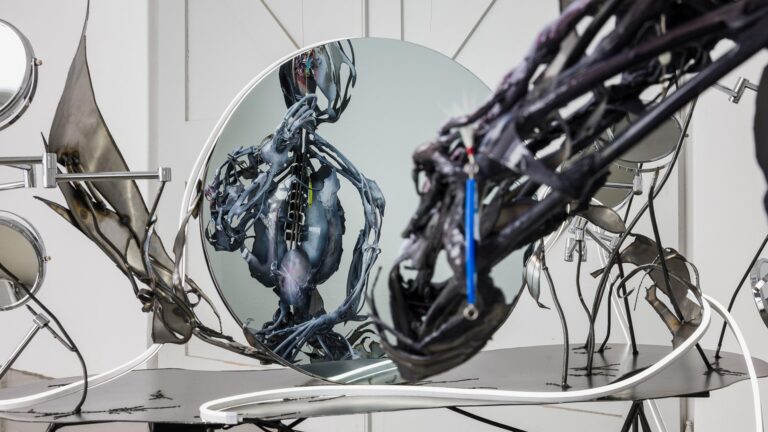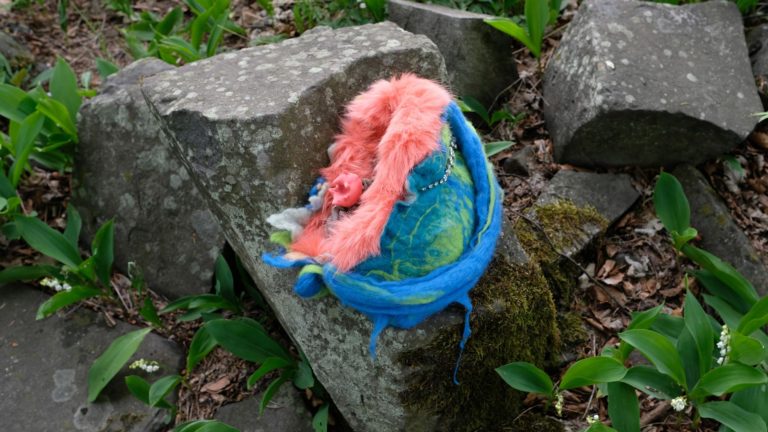Artists: Pakui Hardware
Exhibition title: Vanilla Eyes
Curated by: Rainer Fuchs
Venue: MUMOK, Vienna, Austria
Date: June 4 – October 9, 2015
Photography: all images copyright and courtesy of the artists and MUMOK, Vienna
Since 2014, Neringa Cerniauskaite and Ugnius Gelguda have been operating together as an artist duo under the label Pakui Hardware. This name derives from Pakui, the extremely quick servant of the Hawaiian fertility goddess Haumea. Legend has it that the children of the goddess were all born from different parts of her body. The fertility symbolism of this myth, based on fragmentation and acceleration, and the term hardware raise the question as to how today’s world determined by technical and economic rationality might still be based on myths.
Pakui Hardware are particularly interested in the close relationship between technology and economy. At the center of their work is the question how this relationship changes our real, physical, and bodily worlds and thereby blurs the dividing line between the natural and the artificial worlds. “In all our projects, we test the real vs. the fake or the real vs. the more real—in a sense that we attempt to create a specific twist where this distinction is troubled.” (Pakui Hardware)
Vanilla Ice und Vanilla Eyes
The exhibition title indicates artificial organs, and contains a pun that highlights the interpenetration of the natural and the artificial, the real and the fictional. The production of artificial aromas like vanilla is not only a sign of scientific progress but also challenges us to reconsider our established notions of the natural and artificial, the given and the man-made. “Although the current inventions and products of synthetic biology mainly focus on more mundane things such as flavors and fragrances, the instrument for enhancing and, finally, tailoring human beings has been invented and released into action. From vanilla ice to vanilla eyes?” (Pakui Hardware)
The installation, jointly designed by architects Petras Isora and Ona Lozuraitytee and the two artists, creates a kind of laboratory full of allusions to the research and production of future organisms and life forms. Transparent, ephemeral, and fluid materials oscillating between the organic and the synthetic determine the appearance of the installation. Nano sculptures emit futuristic laser beams, small ceramic asteroid-shaped objects are embraced by neon light tubes, creating an ambivalent artistic paradise. The room is divided by a transparent wall beneath which unnaturally blue water collects in Plexiglas containers. A hatch in the dividing wall stands for permeability and is a metaphor for the connection between real scenarios and visions of the future.
Transformations and moments of change are the recurring features of the work of Pakui Hardware. A typical example is the media transfer of found images from the Nasa Archives into relief-like sculptures.
The historical and contemporary points of reference for this work are found in the bio-tech thriller The Andromeda Strain (1971), in which dangerous extraterrestrial viruses are neutralized in underground chambers, and in current events like the US government’s Asteroid Acts, which permit private companies to conduct biomining using bacteria to extract raw materials on asteroids close to the Earth. The Asteroid Acts are a future scenario in the present that reveals the close links between the interests of capital and genetic biology. They mean that the Anthropocene will be exported as a universal print of human knowledge and action to extraterrestrial cosmic realms.
Pakui Hardware focus on already long existent and implemented systems and programs to design nature, with the aim of making their underlying mechanisms transparent. The works of this artist duo are not simply naively protesting against unstoppable developments but rather make us aware of matters that are concealed and hidden, uncanny and underestimated, internalized or repressed, wanting to keep us in touch with and responsible for reality.
Curated by Rainer Fuchs
With the kind support of the Vilnius University Laser Research Center and Evolva and International Flavors & Fragrances (IFF).
Catalog: Pakui Hardware. Vanilla Eyes
Catalog design by Vytautas Volbekas. Edited by Rainer Fuchs, Museum moderner Kunst Stiftung Ludwig Wien. With forewords by Karola Kraus and Rainer Fuchs. Essays by Neringa Cerniauskaite, Ruba Katrib, Luciana Parisi, and an interview by Rainer Fuchs with Pakui Hardware. German/English, app. 100 pages, numerous color and b/w illustrations.

